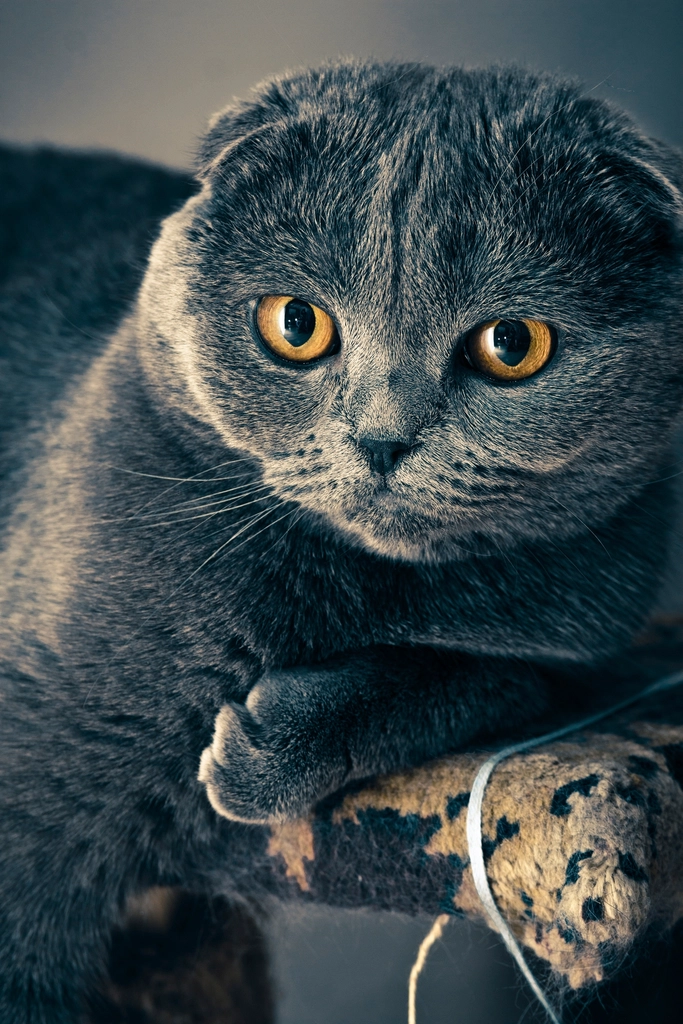Have you ever felt like your cat just knows when you’re having a rough day? It’s almost as if they read your emotions and offer a comforting purr just when you need it most. But is this emotional connection universal among all cats, or are some breeds naturally more empathic than others? The idea of feline empathy is both enchanting and mysterious, pulling at the heartstrings of cat lovers everywhere. Get ready to explore the captivating world of cats and discover if certain breeds truly have a special knack for tuning into our feelings.
The Mystery of Feline Empathy

Feline empathy is one of those magical qualities that cat owners often swear by. Many cat lovers can recall a moment when their furry companion seemed to sense sadness or anxiety and responded with warmth or a gentle nuzzle. But what exactly is empathy in cats? It’s not the same as human empathy, but it might look like your cat sticking close when you’re upset or purring when you need comfort. Scientists are still scratching the surface, investigating whether this is a learned behavior or something more instinctual. While there’s no definitive answer, countless anecdotes suggest that cats do have a way of connecting with our emotions in their own unique way. Some breeds, in particular, seem to have reputations for being especially attentive to their humans.
Breed or Personality: What Matters Most?

When it comes to empathy, is it the breed or the individual personality that counts? While some breeds are known for their affectionate and people-oriented natures, every cat is an individual. Personality can be shaped by genetics, upbringing, environment, and daily interactions. Just like with people, you can meet a reserved Siamese and a cuddly Maine Coon that break all the stereotypes. That being said, certain breeds have built their reputation on being “in tune” with humans. Still, it’s important to remember that a loving bond can grow with any cat, regardless of breed.
The Siamese: Chatty and Connected

Siamese cats are famous for their talkative nature and deep attachment to their people. These cats often follow their owners from room to room, meowing and chirping as if holding a conversation. Many Siamese owners say their cats seem to pick up on their moods, offering extra cuddles when they sense stress or sadness. With their striking blue eyes and vocal personalities, Siamese cats almost seem to demand emotional engagement. Their strong bonds may make them appear especially empathic. If you want a cat that notices when you’re feeling down, a Siamese might just be the purrfect choice.
The Maine Coon: Gentle Giants with Big Hearts

Maine Coons are sometimes called the “gentle giants” of the cat world, and for good reason. Despite their large size and wild appearance, they’re renowned for their soft, loving nature. Maine Coons are often described as dog-like, following their humans around and offering a comforting presence. Their calm temperament and patient attitude make them great companions for families and individuals alike. Many Maine Coon owners report that their cats seem to instinctively know when someone needs a little extra love. With their shaggy coats and soulful eyes, they’re always ready for a snuggle on a tough day.
The Ragdoll: The Ultimate Lap Cat

If there’s one breed that’s synonymous with affection and empathy, it’s the Ragdoll. True to their name, Ragdolls tend to go limp in your arms and crave physical closeness. These cats are known for following their people around, flopping onto laps at the first opportunity, and providing a calming presence. Ragdolls seem to sense when their owners are upset and will often climb onto laps or curl up nearby to offer comfort. Their laid-back attitude makes them ideal for those seeking a gentle, emotionally supportive companion.
The Burmese: People-Oriented and Perceptive

Burmese cats are often described as “dog-like” in their devotion to their families. They thrive on interaction and are happiest when involved in daily life. Because of their strong desire to be near people, Burmese may notice subtle changes in mood and respond with affectionate behavior. Owners frequently report that their Burmese cats will seek them out if they sense something is wrong. Their playful yet compassionate nature makes them well-suited for anyone looking for a cat that seems to care.
The Scottish Fold: Quiet Comfort

With their adorable folded ears and sweet expressions, Scottish Folds are hard to resist. They’re known for their calm, gentle demeanor and tendency to form deep bonds with their owners. Many Scottish Fold parents have noticed that their cats provide silent support by simply being present during difficult times. They may not be as vocal as Siamese cats, but their quiet presence can be incredibly soothing. Scottish Folds seem to sense emotions and often provide comfort in subtle, endearing ways.
The Sphynx: Warmth Beyond Skin Deep

Sphynx cats, famous for their hairless bodies, are actually incredibly warm—both physically and emotionally. Their need for warmth makes them seek out human contact, and many Sphynx owners believe their cats are highly attuned to their feelings. Sphynx cats are outgoing, playful, and love to be the center of attention. Their affectionate behavior often extends to providing comfort when their people are feeling blue. If you want a cat that’s not only physically close but emotionally in tune, the Sphynx could surprise you.
The Russian Blue: Quiet Sensitivity

Russian Blues are known for their reserved yet loyal nature. While they may be shy around strangers, they often develop deep bonds with their chosen people. These cats are sensitive to changes in their environment and can pick up on their owner’s emotional states. Russian Blues may quietly offer companionship, sitting beside you during difficult times or gently nudging for a pet. Their subtle approach to affection makes their empathy feel even more special.
The Abyssinian: Playful and Attuned

Abyssinians are energetic and curious, but they also have an uncanny ability to tune in to their owners’ moods. These cats thrive on interaction and crave mental stimulation, often engaging in playful antics to lift spirits. Abyssinian owners frequently report that their cats seem to notice when they need a distraction or a little fun. Their lively nature, combined with an awareness of their human’s feelings, creates a unique form of empathy that’s hard to resist.
The British Shorthair: Reserved but Loyal

British Shorthairs might not be the first breed you think of when it comes to empathy, but their loyalty and steadiness are remarkable. These cats may not be as demonstrative as a Ragdoll or Siamese, but they provide emotional support in their own way. British Shorthairs often remain calmly present, offering a reassuring presence during tough times. Their understated empathy is perfect for those who appreciate a quiet companion who’s always there, no matter what.
The Tonkinese: Social Butterflies with Heart

Tonkinese cats are a delightful mix of Siamese and Burmese, inheriting the best traits of both. They are extremely social, loving, and eager to be involved in everything their humans do. Tonkinese cats are known to seek out their owners when they sense sadness or stress, offering playful antics or gentle cuddles. Their affectionate nature makes them excellent at providing emotional comfort when it’s needed most.
The Oriental Shorthair: Expressive and Engaged

Oriental Shorthairs are close relatives of the Siamese and share many of their traits, including empathy. These cats are highly expressive—both vocally and physically—and seem to thrive on deep connections with their humans. Owners often say their Oriental Shorthairs seem to “talk back” when spoken to, and their willingness to engage makes them feel like true partners in life. If you want a cat that’s always in tune with your mood, this breed is a strong contender.
The Birman: Gentle and Attentive

Birmans are known for their gentle, affectionate disposition and striking blue eyes. They often form deep attachments to their families and enjoy being involved in daily activities. Birman owners report that their cats are attentive to emotional cues, offering comfort by sitting close or softly purring. Their calm, loving presence makes them a natural choice for those seeking an empathic feline companion.
The Cornish Rex: Playful Comforters

Cornish Rex cats are instantly recognizable for their soft, curly coats and slender bodies. But what truly sets them apart is their playful, affectionate nature. These cats are highly interactive, often following their humans everywhere and wanting to be involved in every aspect of life. When their people are feeling low, Cornish Rex cats often bring joy with their silly antics or by curling up in a warm lap. Their sensitivity and desire to connect make them wonderful emotional companions.
The Devon Rex: Mischievous Yet Caring

Devon Rex cats are playful, mischievous, and deeply affectionate. Their unique appearance and outgoing personality make them stand out, but it’s their caring nature that endears them to many owners. Devon Rex cats often seek out their humans when they sense something is wrong, providing comfort through playful distractions or gentle cuddles. Their sensitive and intuitive behavior is a big reason why so many people adore this breed.
The Persian: Calm and Steady Support

Persian cats are well-known for their calm demeanor and laid-back attitude. While they may not be as overtly affectionate as some breeds, Persians offer steady support just by being nearby. These cats often sit quietly with their owners, providing a sense of peace and stability. Many Persian owners find comfort in their cat’s unflappable presence, especially during stressful times. Their gentle, undemanding nature makes their empathy feel genuine and heartfelt.
The Norwegian Forest Cat: Wise and Watchful

Norwegian Forest Cats have a majestic, wild look, but their hearts are pure gold. These cats are known for their intelligence, independence, and strong bonds with their families. Norwegian Forest Cats are often described as wise and watchful, always keeping an eye on their people. When you’re feeling down, they may quietly offer comfort by sitting close or softly purring. Their attentive and nurturing nature makes them seem especially empathic.
The Exotic Shorthair: Plush Comforters

Exotic Shorthairs, with their plush coats and sweet faces, are often called “teddy bear” cats. These cats are calm, affectionate, and love to be near their humans. When someone in the household feels sad or anxious, Exotic Shorthairs are quick to offer companionship. Their easygoing nature and love of cuddling make them natural comforters, always ready to provide a soft place to land after a tough day.
The Turkish Angora: Elegant Empathy

Turkish Angoras are known for their elegance and grace, but they’re also highly social and affectionate. These cats bond closely with their families and are sensitive to their emotions. Turkish Angora owners often find that their cats seek them out when they’re upset, offering gentle headbutts or soft purrs. Their combination of beauty, intelligence, and emotional sensitivity makes them special companions for those in need of empathy.
The American Shorthair: Down-to-Earth Companions

American Shorthairs are one of the most popular breeds in the United States, valued for their easygoing nature and adaptability. While they may not be as demonstrative as some breeds, they offer steadfast companionship and quiet support. American Shorthair owners report that their cats are usually nearby during tough times, providing comfort simply by being present. Their down-to-earth approach to empathy is a reminder that sometimes, the best support is just having a friend close by.

Linnea is a born and bred Swede but spends as much time as possible in Cape Town, South Africa. This is mainly due to Cape Town’s extraordinary scenery, wildlife, and atmosphere (in other words, because Cape Town is heaven on earth.) That being said, Sweden’s majestic forests forever hold a special place in her heart. Linnea spends as much time as she can close to the ocean collecting sea shells or in the park admiring puppies.






